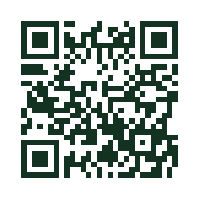Abstract
This article is dedicated to Ponti Venter for his contribution to the historical roots and systematic implications of philosophical problems. A discussion with him about four decades ago prompted me to investigate the Greek roots of our distinction of thought and being. In the analysis below, a brief sketch was given of the initial identification of thought and being in the thought of Parmenides and the consequences it had for the rationalistic tradition since the Renaissance, particularly in connection with the view that the universe itself has a rational structure. Two options were pursued in our analysis of rationalism: (1) to contrast it with empiricism and (2) to relate it to universality and the problem of what is individual. By distinguishing between conceptual and concept-transcending knowledge, an alternative systematic characterisation of rationalism (and irrationalism) is proposed, namely that it absolutises conceptual knowledge (whilst irrationalism deifies concepttranscending knowledge). This view allows for an acknowledgement of the ontic horizon of human experience, co-constituted by the dimensions of modal aspects and type laws, without elevating human understanding to become the law-giver of the world.Copyright information
- Ownership of copyright in terms of the Work remains with the authors.
- The authors retain the non-exclusive right to do anything they wish with the Work, provided attribution is given to the place and detail of original publication, as set out in the official citation of the Work published in the journal. The retained right specifically includes the right to post the Work on the authors’ or their institutions’ websites or institutional repositories.
Publication and user license
- The authors grant the title owner and the publisher an irrevocable license and first right and perpetual subsequent right to (a) publish, reproduce, distribute, display and store the Work in any form/medium, (b) to translate the Work into other languages, create adaptations, summaries or extracts of the Work or other derivative works based on the Work and exercise all of the rights set forth in (a) above in such translations, adaptations, summaries, extracts and derivative works, (c) to license others to do any or all of the above, and (d) to register the Digital Object Identifier (DOI) for the Definitive Work.
- The authors acknowledge and accept the user licence under which the Work will be published as set out in https://creativecommons.org/licenses/by/4.0/ (Creative Commons Attribution License South Africa)
- The undersigned warrant that they have the authority to license these publication rights and that no portion of the copyright to the Work has been assigned or licensed previously to any other party.
Disclaimer: The publisher, editors and title owner accept no responsibility for any statement made or opinion expressed by any other person in this Work. Consequently, they will not be liable for any loss or damage sustained by any reader as a result of his or her action upon any statement or opinion in this Work.
In cases where a manuscript is NOT accepted for publication by the editorial board, the portions of this agreement regarding the publishing licensing shall be null and void and the authors will be free to submit this manuscript to any other publication for first publication.
Our copyright policies are author-friendly and protect the rights of our authors and publishing partners.

